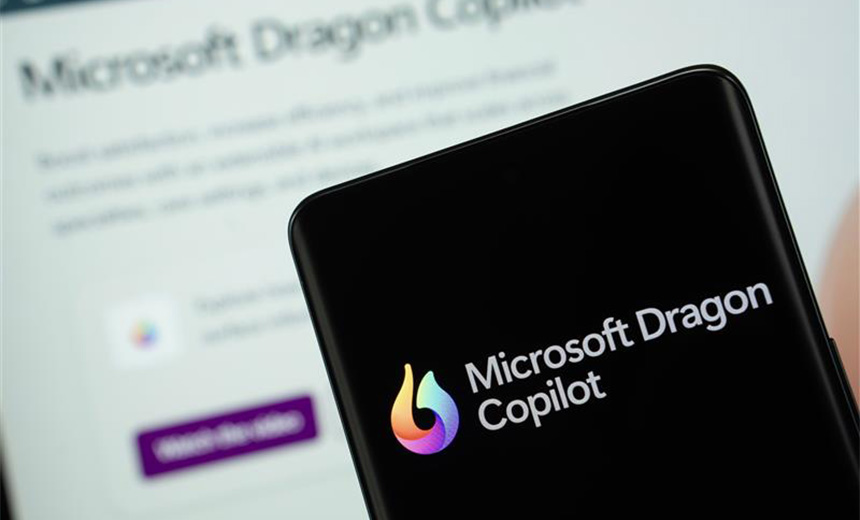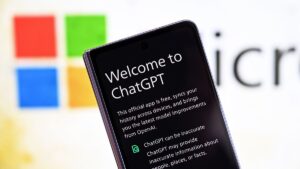WellSpan Transforms Healthcare with Copilot

Streamlining Healthcare Workflows with AI: The Case of Microsoft’s Dragon Copilot
The Challenge of Administrative Overload
In the fast-paced world of healthcare, administrative burden has become a major issue. Dr. R. Hal Baker, the senior vice president and chief digital and information officer at WellSpan Health in Pennsylvania, has experienced this firsthand. Clinicians are often caught up in a whirlwind of paperwork, juggling everything from patient care to documentation, including notes, referrals, and summaries. To tackle this growing problem, WellSpan has adopted Microsoft’s Dragon Copilot, an innovative AI tool designed to ease the workload of healthcare professionals.
How Dragon Copilot Works
Dragon Copilot is more than just a productivity tool; it’s designed to enhance clinical workflows by seamlessly incorporating voice dictation, ambient listening, and generative AI technology. This integration allows clinicians to interact with the system in a more intuitive way. “We’re not only enhancing our workflows in the Electronic Health Record (EHR)," says Dr. Baker, "we’re creating a cohesive environment powered by AI that elevates the overall experience for our staff.”
A Strategic Move by Microsoft
In 2021, Microsoft acquired Nuance Communications for about $16 billion, bringing onboard a wealth of experience in voice technology. Nuance’s Dragon Medical One (DMO) had already been a staple in many hospitals for dictating patient records. Now, with Dragon Copilot, Microsoft combines DMO’s dictation capabilities with its DAX Copilot’s ambient listening technology, which processed over 3 million patient conversations last month from numerous healthcare organizations.
The Need for Innovation
The importance of tools like Dragon Copilot is underscored by statistics from the American Medical Association, which reported a decline in clinician burnout in the United States — from 48% in 2023 to 45% in 2024. While this drop is partly due to advancements in technology, burnout remains a serious issue, affecting more than a third of public health workers worldwide. Research indicates that excessive documentation contributes significantly to this crisis.
Joe Petro, Microsoft’s corporate vice president of health and life sciences solutions, views Dragon Copilot as a crucial response to alleviate these burdens. He notes that "AI has the incredible potential to free clinicians from mundane administrative tasks, allowing them to focus more on patient care."
Early Outcomes
Initial feedback on Dragon Copilot has been promising. A survey by Microsoft involving 879 clinicians from 340 healthcare organizations found that participants saved an average of five minutes per patient encounter. Additionally, 70% reported feeling less burned out, and 93% of patients experienced improved interactions with staff.
A Legacy of Innovation
Microsoft’s acquisition of Nuance brought years of expertise in voice technology into its offerings. Before the rise of Dragon Copilot, Nuance’s DMO was already a standard in hospitals. Now, with the capability to capture exam-room conversations automatically, clinicians can draft documentation more efficiently. This new tool enables easy note editing using natural language, ultimately designed to make the documentation process less tedious and more accurate.
The Global Reach of Dragon Copilot
Dragon Copilot is set to become widely available in the United States and Canada by May 2025, with plans for rollout in the United Kingdom, Germany, France, and the Netherlands. The tool promises to ease the documentation burden not just for clinicians but also for the broader healthcare ecosystem. Glen Kearns, CIO of The Ottawa Hospital, remarked on its potential to significantly ease the strain of documentation while creating better data for analytics and enhancing patient care.
Competing in the AI Healthcare Space
Microsoft faces competition in the AI healthcare landscape from companies like Abridge, Suki, and Epic. For instance, Abridge has developed real-time documentation capabilities that are actively being used in hospitals, while Epic integrates AI into its EHR systems for seamless functionality. Despite the competition, Dragon Copilot sets itself apart by offering an all-in-one solution backed by Microsoft’s extensive resources.
Expanding Use Cases for AI
The applications of AI in healthcare extend beyond documentation. Other companies like Google, Amazon, and Basalt Health are working on innovative solutions that facilitate various healthcare processes. For example, Google’s Vertex AI Search helps clinicians analyze complex data more quickly, while Amazon’s HealthScribe automates note-taking and summarization.
The Future of AI in Healthcare
As Dragon Copilot and similar innovations advance, healthcare leaders face critical questions about the future of AI in the sector. Dr. Baker views these tools as essential for enhancing patient experiences, saving clinicians from burnout, and reclaiming valuable time during patient encounters. However, the journey ahead may be challenging; the successful adoption of AI will depend on building trust, proper training, and seamless integration into existing workflows. As the healthcare community observes the rollout of Dragon Copilot, there’s cautious optimism that this technology could truly revolutionize the industry.






